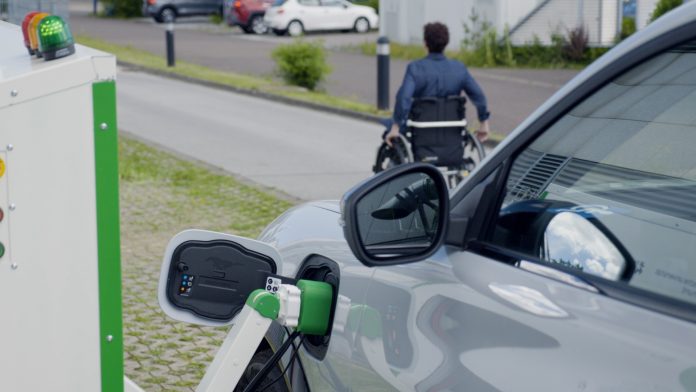Following initial laboratory testing, Ford is trialling a prototype robot charging station for disabled drivers that they can operate via their smartphone.
According to Ford, the robot charging station, custom-made by Dortmund University, in Germany, could eventually be installed at disabled parking spaces, in car parks or at private homes.
The technology could also enable disabled drivers to stay in the car while charging, or they could leave the car while the robot does all the work.
Once activated, the station cover slides open and the charging arm extends towards the inlet with the help of a tiny camera.
Then after the vehicle has charged, the arm retracts back into place.
For the trial, carried out in Germany, drivers can monitor the charge status via the FordPass app.
In future, the process could become fully automated, with minimal or no driver involvement.
The driver would simply send the vehicle to the charging station, with the infrastructure ensuring it reaches and returns from its destination autonomously.
Ford says a follow-up project with the charging network provider Ionity will look to further improve the robot charging station.
Birger Fricke, research engineer, Research and Innovation Centre, Ford of Europe said, “Ford is committed to ensuring freedom of movement and right now refuelling or charging your vehicle can be a major problem for some drivers.
“The robot charging station could be an added convenience for some people but absolutely essential for others.”
Angela Aben, Employee Communications, Ford of Europe, who uses a power-assisted wheelchair to gain more mobility and independence said: “The introduction of a robot charging station would offer me a much greater level of independence.”




